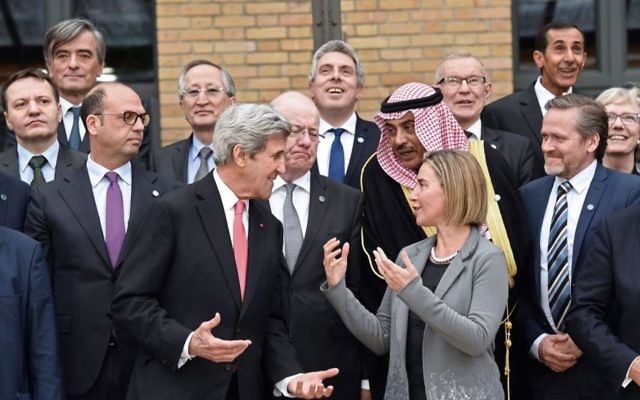Paris conference an ‘empty exercise’
An overhyped talkfest – that is the consensus among Jewish leaders in Australia about the January 15 peace conference in Paris.

AN overhyped talkfest – that is the consensus among Jewish leaders in Australia about the January 15 peace conference in Paris, billed as trying to find a solution to the Israeli-Palestinian conflict. The talks were attended by more than 70 countries, but Israel pointedly stayed away.
However, Jewish leaders were upbeat about Foreign Minister Julie Bishop appearing to distance Australia from the conference’s concluding statement, which endorsed December’s UN Security Council resolution 2334.
The UN resolution had blamed Israeli settlements as a roadblock to peace, describing them as “illegal” and built on “occupied” territory.
But Bishop’s office stated that although Australia took part in the conference, “this does not mean we agree with every element of the final statement”.
“The most important priority must be a resumption of direct negotiations between the Israelis and the Palestinians for a two-state solution as soon as possible,” Bishop’s spokesperson stated.
Australia’s reservations about the statement, and those of the UK, were condemned by senior Palestinian official Saeb Erekat, who said: “We regret and denounce the reservations made by the United Kingdom and Australia,” adding the Australian and British stances granted “impunity” to Israel.
Executive Council of Australian Jewry (ECAJ) executive director Peter Wertheim described the talks as “an exercise in empty grandstanding”.
But he added: “It was heartening that the Australian government distanced itself from the communique, and the British government, which attended the conference only as an observer, refused to sign it.”
Zionist Federation of Australia (ZFA) president Danny Lamm said: “The major players should know that the only way to solve the Palestinian-Israeli conflict is a return to the negotiating table. This is what Prime Minister Benjamin Netanyahu and the Israeli government have been advocating for years.
“We thank FM Julie Bishop for once again acknowledging that direct negotiations is the only way forward,” said Lamm.
Australia/Israel & Jewish Affairs Council (AIJAC) executive director Colin Rubenstein saw the conference as “a diplomatic mistake which undermined its own declared goal of encouraging the parties to resume direct negotiations toward a two-state outcome”.
“At a time when the intransigent Palestinian leadership has been avoiding such negotiations in favour of a unilateral strategy of attempting to persuade the international community into imposing a solution to their liking, what could be less likely to convince them to return to bilateral negotiations than staging a big international conference of the sort they have long advocated for?”
Bishop “is to be commended for once again showing her astute understanding of the real prerequisites for progress toward a two-state outcome – as she did in responding to UN Resolution 2334 last month”, said Rubenstein.
Rabbinical Council of Australia & New Zealand president Rabbi Yaakov Glasman said his organisation supported the Australian government’s “principled stance … in repudiating a biased and one-sided resolution”.
Union for Progressive Judaism president Roger Mendelson said Progressive Jewry in Australia and the region “supports the Israeli government in the stance taken against the Paris conference. This is not something which can be unilaterally imposed on Israel.”
PETER KOHN

comments